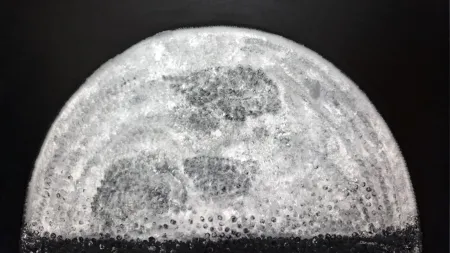- India
- International
This is why we (often) hate the sound of our own voice
Most of us find our own recorded voices to be higher-pitched, nasally, or just plain unpleasant. But why is this?
 Our brains process external voices differently from our own (Source: Pexels)
Our brains process external voices differently from our own (Source: Pexels)Have you ever recoiled in horror upon hearing a recording of your voice? You’re not alone. Most of us find our own recorded voices to be higher-pitched, nasally, or just plain unpleasant. But why is this?
An intriguing reel by Adithya Nataraj, a certified yoga and nutrition coach, also begged the same question. So, we decided to delve deep into the fascinating science behind why we dislike our own recorded voices, exploring the surprising ways our bodies perceive sound and how our self-image clashes with reality.
View this post on Instagram
According to Dr Vijay Prakash, consultant ENT surgeon at CARE Hospitals, Hitech City, Hyderabad, the phenomenon of disliking the sound of our own voices when heard in recordings can be attributed to a combination of physiological and psychological factors. When we listen to other people’s voices, the mechanism involves both the external sound waves traveling through the air and bone conduction, similar to how we hear our own voices, explained Dr Prakash.
“When we speak, we hear our own voices through bone conduction as well as through the air, giving us a deeper, richer perception of our voice. However, when we hear a recording of our voice, we only hear the sound as it travels through the air, lacking the bone-conducted component,” Dr Prakash explained to indianexpress.com in an interaction. This difference can make our recorded voice sound unfamiliar and less pleasing to us.
Our brains process external voices differently from our own due to factors like familiarity, emotional context, and cognitive biases. We tend to pay more attention to the content and emotional tone of others’ voices rather than the physical characteristics of the sound itself, he added.
Our self-image plays a role, too. We often have a mental picture of how we sound, based on a combination of internal perception and how others describe us. So, hearing a recording that doesn’t match this perception can be jarring and uncomfortable, Dr Prakash noted.

The discrepancy between how we perceive our voices internally and how they sound in recordings can lead to feelings of discomfort or dissatisfaction. Additionally, since we’re not accustomed to hearing our voices from an external perspective, it can take time to adjust to the difference and become more accepting of our recorded voices.
Understanding the science behind our aversion to our own voices can actually be liberating. It reminds us that perception isn’t always reality and that how we sound to ourselves may not be how we sound to others. So, the next time you hear a recording of yourself, take a deep breath and remember: it’s just your voice, and it’s a powerful tool for connecting and expressing yourself.
Apr 04: Latest News
- 01
- 02
- 03
- 04
- 05

























